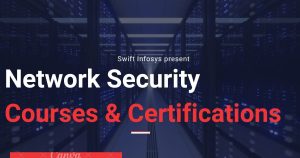In today’s digital landscape, cybersecurity is more critical than ever. With the constant threat of cyber attacks looming large, the demand for skilled professionals in this field continues to soar. If you’re looking to kickstart your career in cybersecurity, you’re in the right place. In this comprehensive guide, we’ll delve into the realm of entry-level cyber security jobs, shedding light on the roles, responsibilities, and skills required to thrive in this dynamic industry.
1. Understanding Entry-Level Cyber Security Jobs
Defining Entry-Level Roles: Explore the various entry-level positions available in the cybersecurity domain, including roles such as Security Analyst, Network Administrator, and Junior Penetration Tester.
Key Responsibilities: Gain insights into the primary tasks and responsibilities associated with each entry-level role, from monitoring network systems to conducting vulnerability assessments.
Skill Requirements: Learn about the essential skills and qualifications needed to excel in entry-level cybersecurity positions, including knowledge of networking protocols, familiarity with security tools, and problem-solving abilities.
2. Exploring Career Pathways
Career Trajectories: Discover the potential career pathways and advancement opportunities within the field of cybersecurity, from entry-level positions to specialised roles such as Cybersecurity Consultant or Incident Responder.
Certifications and Training: Explore the importance of certifications and ongoing training programs in enhancing your skills and credibility as a cybersecurity professional, with insights into popular certifications such as CompTIA Security+ and Certified Ethical Hacker (CEH).
3. Navigating the Job Market
Job Search Strategies: Learn effective strategies for navigating the competitive job market and securing entry-level cybersecurity positions, including tips for crafting a compelling resume, preparing for interviews, and leveraging networking opportunities.
Industry Insights: Gain valuable insights into the current trends and demands within the cybersecurity job market, with a focus on emerging technologies and in-demand skill sets.
4. Building a Successful Career
Professional Development: Explore ways to continuously enhance your skills and knowledge in cybersecurity through ongoing learning, participation in industry events, and collaboration with peers.
Career Growth Tips: Receive actionable tips and advice for accelerating your career progression in cybersecurity, from seeking mentorship opportunities to pursuing advanced certifications and specializations.
Top 10 Entry-Level Cyber Security Jobs: Your Gateway to a Thriving Career
1. Cloud Security Specialist:
Responsibilities: Securing cloud infrastructure, implementing access controls, and ensuring compliance with cloud security standards.
Skills Needed: Understanding of cloud computing principles, proficiency in cloud security platforms (e.g., AWS, Azure), and knowledge of encryption techniques.
Career Outlook: Entry point to cloud security teams, with opportunities for specialization in specific cloud platforms or services.
2. Cybersecurity Awareness Trainer:
Responsibilities: Educating employees on cybersecurity best practices, conducting awareness campaigns, and promoting a security-conscious culture.
Skills Needed: Strong communication skills, ability to develop engaging training materials, and understanding of social engineering tactics.
Career Outlook: Entry-level position in cybersecurity awareness programs within organisations, with potential growth into security awareness management or consultancy roles.
3. Mobile Security Analyst:
Responsibilities: Assessing mobile application security, conducting penetration tests on mobile devices, and advising on mobile security controls.
Skills Needed: Knowledge of mobile operating systems (e.g., iOS, Android), familiarity with mobile security frameworks, and experience with mobile app development.
Career Outlook: Entry point to mobile security teams, with opportunities in mobile device management (MDM) or mobile application security testing.
4. Cybersecurity Researcher:
Responsibilities: Conducting research on emerging threats and vulnerabilities, developing proof-of-concept exploits, and contributing to security publications.
Skills Needed: Research skills, understanding of malware analysis techniques, and proficiency in programming languages (e.g., Python, C/C++).
Career Outlook: Entry-level position in cybersecurity research labs, with potential growth into threat intelligence analysis or security product development.
5. Industrial Control Systems (ICS) Security Analyst:
Responsibilities: Securing critical infrastructure systems, conducting risk assessments for industrial control networks, and implementing ICS security measures.
Skills Needed: Knowledge of ICS protocols (e.g., Modbus, DNP3), understanding of SCADA systems, and familiarity with ICS security standards (e.g., NIST SP 800-82).
Career Outlook: Entry point to ICS security teams in industries such as energy, manufacturing, and utilities, with opportunities for specialisation in OT security.
6. Cryptography Specialist:
Responsibilities: Designing cryptographic algorithms, implementing encryption mechanisms, and assessing cryptographic protocols for vulnerabilities.
Skills Needed: Understanding of cryptographic principles, proficiency in cryptographic algorithms (e.g., AES, RSA), and experience with cryptographic libraries.
Career Outlook: Entry-level position in organizations requiring strong encryption expertise, with opportunities in cryptography research or cryptographic engineering.
7. Cybersecurity Auditor:
Responsibilities: Evaluating security controls, conducting compliance audits, and assessing adherence to regulatory standards and industry best practices.
– Skills Needed: Knowledge of audit methodologies (e.g., ISACA’s COBIT, PCI DSS), attention to detail, and ability to interpret audit findings.
– Career Outlook: Entry point to cybersecurity audit teams within organizations or auditing firms, with potential growth into audit management or consulting roles.
8. Cybersecurity Sales Engineer:
– Responsibilities: Providing technical expertise to sales teams, conducting product demonstrations, and advising clients on cybersecurity solutions.
– Skills Needed: Strong presentation skills, understanding of cybersecurity technologies, and ability to translate technical concepts for non-technical audiences.
– Career Outlook: Entry-level position in cybersecurity sales, with opportunities for advancement into sales management or technical consulting roles.
By incorporating these additional topics, you can offer a comprehensive overview of entry-level cybersecurity jobs, catering to a wider audience interested in exploring diverse career paths within the cybersecurity domain.
Unlocking Opportunities: Cyber Security Jobs and Salaries in the United States
In today’s digital age, cybersecurity has become a cornerstone of every industry, safeguarding sensitive data and infrastructure from evolving cyber threats. As the demand for skilled cybersecurity professionals continues to rise, so do the career prospects and salaries in this dynamic field. In this article, we’ll explore the diverse range of cybersecurity jobs available in the United States, along with insights into salary trends and where to find job vacancies.
1. The Landscape of Cyber Security Jobs:
Dive into the vast array of cybersecurity roles available, from entry-level positions to
specialised roles such as security analysts, penetration testers, and cyber threat intelligence analysts.
Explore the responsibilities and skill sets required for each role, highlighting the diverse opportunities for professionals with varying levels of experience and expertise.
2. Salary Insights: What to Expect in Cybersecurity Careers:
Provide an overview of the average salaries for different cybersecurity roles in the United States, considering factors such as experience, location, and industry.
Discuss salary trends and growth opportunities within the cybersecurity field, showcasing the lucrative nature of careers in this high-demand industry.
3. Job Vacancy Links: Where to Find Cyber Security Opportunities:
Provide direct links to reputable job boards and career websites listing current cybersecurity job vacancies in the United States.
Highlight the benefits of using these platforms for job seekers, such as access to a wide range of job opportunities, advanced search filters, and personalized job alerts.
4. Top Cybersecurity Certifications: Boosting Your Career Prospects:
Discuss the importance of cybersecurity certifications in enhancing career prospects and earning potential.
Highlight popular certifications such as CISSP, CEH, and CompTIA Security+, along with their relevance to different cybersecurity roles and industries.
5. Navigating the Job Market: Tips for Success:
Offer practical advice for job seekers looking to break into or advance their careers in cybersecurity, including tips for resume writing, interview preparation, and networking.
Provide insights into emerging trends and skill sets that are highly sought after in the cybersecurity job market, helping job seekers stay ahead of the curve.
As cyber threats continue to evolve, the demand for skilled cybersecurity professionals in the United States shows no signs of slowing down. By exploring the diverse range of cybersecurity jobs, understanding salary trends, and leveraging job vacancy links and resources, aspiring professionals can unlock exciting career opportunities in this rapidly growing field. Whether you’re a seasoned cybersecurity expert or just starting your career journey, the possibilities in cybersecurity are endless – so seize the moment and embark on a rewarding career path in protecting the digital world.
Elevate Your Career: Top Cyber Security Certifications to Boost Your Expertise
In the fast-evolving landscape of cybersecurity, staying ahead of the curve is essential to safeguarding digital assets and mitigating cyber threats effectively. Cybersecurity certifications serve as badges of expertise, validating your knowledge and skills in various domains of cybersecurity. In this article, we’ll explore some of the top cybersecurity certifications that can elevate your career prospects and provide links to where you can learn more about each certification.
1. CISSP (Certified Information Systems Security Professional):
Widely regarded as the gold standard of cybersecurity certifications, CISSP validates your expertise in designing, implementing, and managing cybersecurity programs.
Explore the domains covered by CISSP, including security and risk management, asset security, and communication and network security.
– [Learn more about CISSP certification
2. CEH (Certified Ethical Hacker):
CEH equips you with the skills and knowledge to identify and exploit vulnerabilities in systems ethically, allowing organizations to enhance their security posture proactively.
– Dive into the topics covered by CEH, such as ethical hacking methodologies, penetration testing, and network security.
3. CompTIA Security+:
– Ideal for entry-level cybersecurity professionals, CompTIA Security+ validates your baseline skills in IT security, making it a valuable certification for launching your cybersecurity career.
– Discover the core concepts covered in CompTIA Security+, including threat detection, cryptography, and risk management.
– [Learn more about CompTIA Security+ certification
4. CISM (Certified Information Security Manager):
– Geared towards information security managers and professionals, CISM certified your ability to manage, design, and oversee an enterprise’s information security program.
– Explore the four domains of CISM, including information security governance, risk management, and incident management.
– [Learn more about CISM certification
5. CCNA Security (Cisco Certified Network Associate Security):
– Offered by Cisco, CCNA Security validates your skills in securing Cisco networks and infrastructure, making it an essential certification for network security professionals.
– Delve into the topics covered in CCNA Security, such as secure network infrastructure, VPN technologies, and endpoint security.
– [Learn more about CCNA Security certification
Conclusion:
Investing in cybersecurity certifications is a strategic move to enhance your expertise, credibility, and career prospects in the ever-evolving field of cybersecurity. Whether you’re a seasoned professional looking to validate your skills or an aspiring cybersecurity enthusiast aiming to enter the industry, obtaining relevant certifications can open doors to new opportunities and propel your career forward. Explore the certifications mentioned above and embark on a journey towards becoming a recognized cybersecurity expert in today’s digital landscape.
If you are interested in Cyber Security Enrol Now






